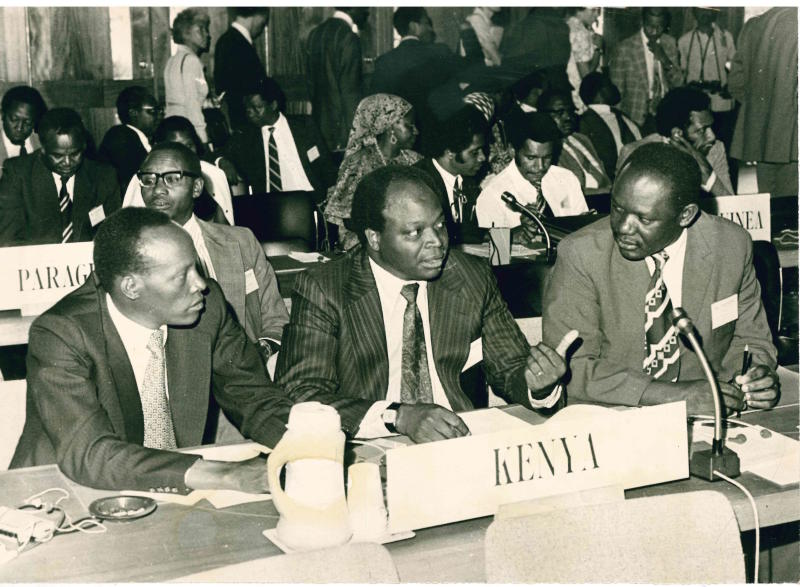May 1976: Finance Minister Mwai Kibaki [centre] and assistant Dan Amayo among delegates at UNCTAD conference [File]
×
The Standard e-Paper
Kenya’s Boldest Voice

May 1976: Finance Minister Mwai Kibaki [centre] and assistant Dan Amayo among delegates at UNCTAD conference [File]
Depending on where one stands, history will judge the late President Mwai Kibaki either kindly or harshly for his life and service to Kenyans. I choose to remember him as the quintessential but contradictory public servant that he was.